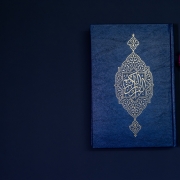ʿAbd al-Wahhāb al-Shaʿrānī’s Laṭāʾif al-Minan and the Virtue of Sincere Immodesty
The essay below analyzes the substance and rhetoric of ʿAbd al-Wahhāb al-Shaʿrānī’s (d. 973/1565) book Laṭāʾif al-minan wa-l-akhlāq (Subtle Blessings and Morals). While giving particular attention to the text’s introduction and concluding sections, in my analysis here I use the Laṭāʾif as a case study to illustrate how Suf authors like al-Shaʿrānī attempted to relieve the tension between the antipodal Suf virtues of, on the one hand, concealing one’s spiritual state to preserve the purity of one’s intention and, on the other, speaking openly about God’s blessings upon one as a demonstration of gratitude to God and a means to guide others along the Suf Path. ʿAbd al-Wahhāb al-Shaʿrānī was an Egyptian Suf and legal thinker who lived in Cairo during the fnal years of the Mamlūk Sultanate and the frst half-century of Ottoman rule in Egypt. He is best remembered today for his writings in comparative Islamic law (ikhtilāf al-madhāhib), Suf ethics, and Suf hagiography. Several of his texts would generate controversy during his lifetime owing to what he claimed









